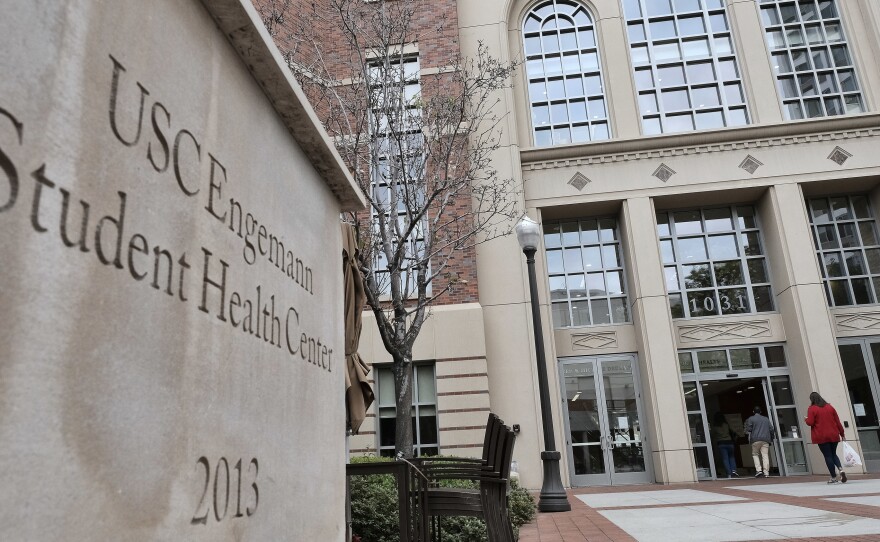Editor's note: This story describes graphic allegations of sexual abuse.
The University of Southern California says it has reached a tentative class action settlement agreement worth $215 million over allegations of sexual harassment and abuse by a gynecologist who used to work at its student health center.
Approximately 500 current and former students have accused gynecologist George Tyndall of misconduct, according to The Associated Press.
The settlement requires court approval before it is final. USC says anyone who received treatment from Tyndall for women's health issues is eligible to receive compensation of $2,500. They aren't required to provide additional information about their interaction with Tyndall to receive those funds.
Other former patients can seek additional money up to $250,000 by detailing their experience with Tyndall.
The school's board of trustees said in May that then-USC President C.L. Max Nikias would step down, as the Tyndall scandal was unfolding. The interim president, Wanda Austin, said in a statement that the settlement is intended to provide relief to those impacted by Tyndall's actions.
"By doing so, we hope that we can help our community move collectively toward reconciliation," said Austin. "I regret that any student ever felt uncomfortable, unsafe, or mistreated in any way as a result of the actions of a university employee."
As NPR's Camila Domonoske reported, Tyndall and USC reached a deal in 2017 that resulted in his departure from the school. Before that, he was "placed on leave after a 2016 investigation found he made racially discriminatory and sexually inappropriate remarks to patients."
Lawsuits at the state and federal levels have been filed by women alleging abuse by Tyndall. Here's more from Domonoske:
"The lawsuits are blistering. They go into graphic detail about Tyndall's alleged practices, such as fully nude exams that were not medically necessary and digital penetration that did not resemble a routine gynecological exam. In one case, a woman alleges that Tyndall placed his entire ungloved hand inside her vagina."
According to Reuters, a lawyer representing 44 women accusing Tyndall of misconduct in two separate lawsuits says the settlement amount is too modest.
"We are continuing to vigorously litigate our state cases for numerous victims and we will insist that each of our clients be properly compensated for what they were forced to endure," attorney Gloria Allred told the wire service.
Tyndall has denied wrongdoing, the Los Angeles Times reports, and has said in interviews that "his exams were in keeping with the standards outlined by textbooks and the American College of Obstetricians and Gynecologists."
While no criminal charges have yet been filed against Tyndall, the Times reports that "prosecutors in the Los Angeles County district attorney's sex crimes division are currently evaluating whether to file criminal charges in 56 potential cases."
It likely would take a while for those eligible for money from this settlement to actually receive it — according to USC, the court approval process "can take six to eight months." The university is also offering free counselling and support services to former patients of Tyndall.
The university said in May that an investigation that went through a former health center director's files found that patients had troubling complaints about Tyndall's clinical practices and conduct as early as 2000.
"The files contained eight complaints logged between 2000 and 2014 that were concerning. These included racially insensitive and other inappropriate comments, concerns that he was not adequately sensitive to patient privacy, a complaint of feeling 'uncomfortable,' another that Tyndall 'gave me the skeevies,' and another that he was "unprofessional.' Several of the complaints were concerning enough that it is not clear today why the former health center director permitted Tyndall to remain in his position."
Austin stressed that the university recently has made "sweeping changes," and "we continue to work every day to prevent all forms of misconduct on our campuses, to provide outstanding care to all students, and to ensure we have policies and procedures that prioritize respect for our students and our entire university community."
Copyright 2018 NPR. To see more, visit http://www.npr.org/.






